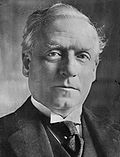This article needs additional citations for verification .(July 2016) |
15 November 1922 | |||||||||||||||||||||||||||||||||||||||||||||||||||||||||||||||||||||||||||||||||||||||||||||||||||||
All 74 Scottish seats to the House of Commons | |||||||||||||||||||||||||||||||||||||||||||||||||||||||||||||||||||||||||||||||||||||||||||||||||||||
|---|---|---|---|---|---|---|---|---|---|---|---|---|---|---|---|---|---|---|---|---|---|---|---|---|---|---|---|---|---|---|---|---|---|---|---|---|---|---|---|---|---|---|---|---|---|---|---|---|---|---|---|---|---|---|---|---|---|---|---|---|---|---|---|---|---|---|---|---|---|---|---|---|---|---|---|---|---|---|---|---|---|---|---|---|---|---|---|---|---|---|---|---|---|---|---|---|---|---|---|---|---|
| |||||||||||||||||||||||||||||||||||||||||||||||||||||||||||||||||||||||||||||||||||||||||||||||||||||
 Results of the 1922 election in Scotland Labour Liberal Unionist National Liberal Communist Party of Great Britain Scottish Prohibition Party | |||||||||||||||||||||||||||||||||||||||||||||||||||||||||||||||||||||||||||||||||||||||||||||||||||||
A general election was held in the United Kingdom on 15 November 1922. Of the 74 seats representing Scotland, 71 seats represented burgh and county constituencies contested under the first past the post electoral system, and 3 represented the Combined Scottish Universities multi-member University constituency, which used the Single Transferable Vote (STV) method. [1] As voters in university constituencies voted under a different system, and in addition to their territorial vote, the results are compiled separately.
Contents
- Results
- Seats summary
- Burgh & County constituencies
- University constituencies
- Votes summary
- See also
- Notes
- References
The election saw major gains for the Labour Party, which had entered the election as Scotland's 6th largest party, and emerged from the election as the largest party in Scotland. In contrast both the Conservatives (represented in Scotland by the Unionist party) and the National Liberals suffered heavy losses. These two parties had composed the ruling coalition government under David Lloyd George, which had collapsed following the Conservatives withdrawal from the coalition amidst several scandals. Most of the elected Labour MP's had included support for Scottish Home Rule in their manifestos. [2] Part of the reason for Labour's success came from a shift in the political alignment of Scottish Catholics of Irish descent, who had prior to Irish independence voted Liberal due to the party's support for Irish Home Rule. [3] [ full citation needed ] Despite this, the two Liberal parties received between them 39.2% of the Scottish vote.
Of the party leaders, two represented Scottish constituencies, with Bonar Law representing Glasgow Central and Asquith representing Paisley.
Two minor parties were also able to pick up seats with the Communist Party gaining Motherwell and the Scottish Prohibition Party gaining a seat in Dundee (in the process ejecting Winston Churchill from Parliament).





